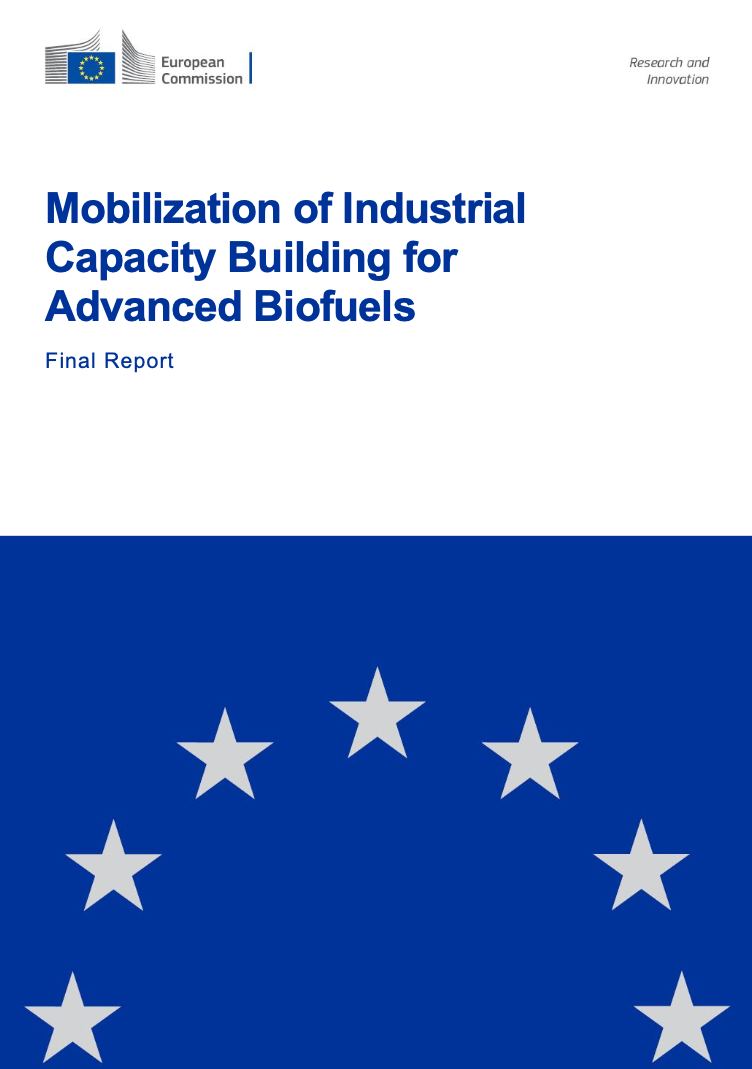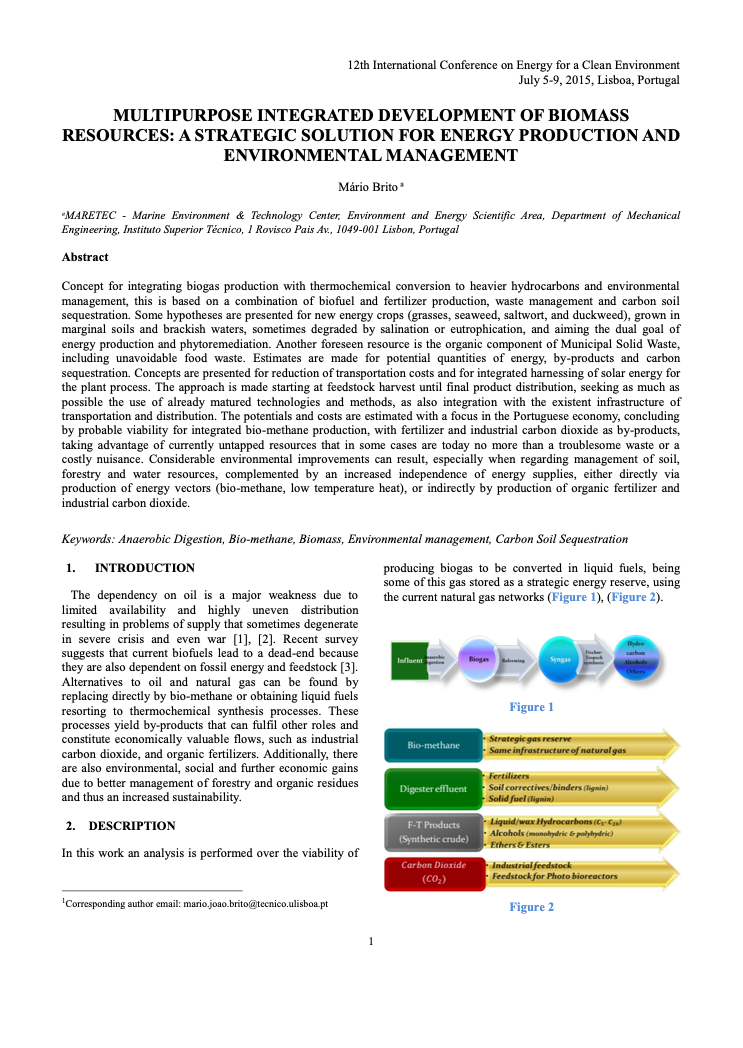Brito: Multipurpose integrated development of biomass resources - A strategic solution for energy production and environmental management | 2015
Jun 23, 2025

Summary
- The author of this research paper investigates the integration of biogas production with thermochemical conversion to heavier hydrocarbons and environmental management with a focus on the Portuguese economy
- Specifically, the research focuses on combining biofuel and fertiliser production, waste management and carbon soil sequestration
- Different feedstock types grown in marginal soils and brackish waters are considered (i.e. grasses, seaweed, saltwort and duckweed) as well as organic component of municipal solid waste
- Approach from feedstock harvest to final product distribution, accounting for the use of already matured technologies and methods and integration of existing infrastructure as much as possible
- Considerable environmental improvements can result (soil management, forestry and water resources) and independence of energy supplies
Key points
- Investigating the potential of different biomass conversion technology to process feedstocks
- Anaerobic digestion
- FischerTropsch synthesis
- The creation of high quality fertiliser for soil improvement as a by-product,leading to a potential for carbon sequestration in the soil
- Other potential improvement linked to biomass
- Improved watershed management by reducing and delaying surface runoff, futher avoiding soil damange (erosion, nutrient leaching) and other benefits for the water ecosystems (prevented siltation, lower flood potential, smoother flows, reduced eutrophication)
- Reduced eutrophication as a result of
- Lesser quantity of leached nutrients (nitrogen and phosphorus)
- Removal of excess nutrients by harvesting aquatic energy crops (such as duckweed or seaweed)
- Potential for increased precipitations due to grasses shrubs and trees providing spots for water vapor condensation and fog drip
- Improvement of wildfire control and impact due to frequent removal of flammable biomass(also preventing heavy erosion, reducing direct economic impact of wildfire)
- Reduced need for tillage and herbicides
- If energy crops grown on degraded soil or wastelands, a reuse of fields for energy crop can lead to significant recovery or rehabilitation in the long run (also soil formation, thickening and increased fertility)
- Energy and transportation: harvest and transportation must be economical, avoiding liquid fuels. Power sources of machinery and transportation infrastructure should be local, renewable and electric
- Waste heat from the FT processes can be used in combined heat and power schemes
Opportunities for the Portuguese economy
- Substitution of all natural gas or about 30% of oil consumption
- Improve forest maintenance, curtailing wildfire intensity and spread
- Reductionof landfill needs, since organic waste requires 30-40% of space
- Increase of energy autonomy leading to a more resilient economy.
- A more even balance-of-payments, lessening trade deficits
Main conclusion
- The major conclusions are: bio-methane production fully viable and economicallycompetitive, liquid fuels from F-T synthesis appears only to be competitive when oil prices rise above 100€ (2014)/barrel (0,063€2014/kWh), and if biomass cost could be made lower through use of cheaper techniques, equipment and biomass feedstock.
- All described above have significant indirect impacts on the socio-economic and environmental levels and are not yet viewed as a potentially an integrated system in most analysis that lead to energy and environmental policies and investment decisions. The innovative approach of this work is the focus on an integrated approach as a way of simultaneously takes advantage of all potential benefits in an effective manner.
Recente artikelen
Renewable fuels
Bio-based value chains
Europe
EC DG Research: Mobilization of Industrial Capacity Building for Advanced Biofuels | 2026

Non-road mobile engines
Biofuels
Waste biomass


